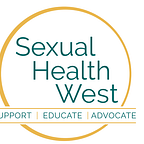Irelands long journey to contraception
In November 2019 Minister for Health Simon Harris received his report from the advisory group on how to best implement free contraceptives for all. The report comes from the Minister’s commitment following the repeal of the 8th amendment to the Irish Constitution that contraceptives will become free for all by 2021. If the minister is successful, Ireland will hopefully see free contraceptives for all on the same year where 50 years previously 49 women boarded a train to Belfast to buy contraceptives which were prohibited in the Republic of Ireland at the time
Some of the key moments in Ireland's Journey:
On May 22nd 1971, 49 women from the Irish Women’s Liberation Movement (IWLM) travelled from the Dublin to Belfast to purchase contraceptives. Since 1935 under the criminal law amendment act, it stated that “It shall not be lawful for any person to sell, or expose, offer, advertise, or keep for sale or to import or attempt to import into Saorstát Eireann for sale, any contraceptive”. This event was highly publicised at the time and was a milestone of sexual health in Ireland. It was seen as an act of defiance against the Catholic Church who strictly prohibited the use of contraceptives. Ireland’s journey towards access to contraceptives has been difficult, to say the least.
A milestone case that occurred in 1974 of McGee vs. Attorney case was brought to the Supreme Court. The case involved Mary McGee a married mother of four who had suffered complicated pregnancies by severe cereal thrombosis. She also suffered a stroke and paralysis. She was advised that her life could be endangered by another pregnancy and was prescribed spermicide jelly and a diaphragm. Due to the 1935 Criminal Law Amendment Act, she was prohibited from acquiring her prescription. The Supreme Court ruled in favour of Mary Mc Gee and stated that married couples have the constitutional right to make private decisions on family planning.
In 1979, the Irish health minister, Charles Haughey, introduced a bill limiting the legal provision of contraceptives to “bona fide family planning purposes.” Signed into law in November 1980, the Health (Family Planning) Act ensured that contraceptives could be sold by a registered pharmacist to customers with a valid medical prescription. However, this bill was still highly contentious as it was mostly given to married couples.
It wasn’t until 1993 that condoms were fully deregulated in Ireland. It took another 12 years for RTE to remove the ban for condom advertisements on air. 2011 allowed access to the over the counter emergency contraceptive pill. 2018 saw a revolutionary change in the constitution where the 8th amendment was repealed which equalled the life of the unborn child to the mother. Following the repeal, access to the abortion pill and abortion services were made free for those seeking it.
Universal access to contraception
Universal access to contraceptives has been a focal point for the Minister for Health following the recent legalisation of pregnancy termination in Ireland, and his promise to have this implemented by 2021.
The government established the working group in April 2020 to consider policies and legislation around improving access to contraception after the Oireachtas Committee on the Eighth Amendment recommended free contraception. Unsurprisingly the barriers that the report found were for women accessing contraception were local access, cost, embarrassment, inconvenience and lack of knowledge. The group has suggested several different actions plans to best utilise the funding.
The universal approach would be that contraceptives would be free to all women and this is estimated to cost between 80–100 million euros per year.
Another option would emphasise long-acting reversible contraceptives (LARCs) such as IUDs and implants, which is one of the most effective forms of contraception. This would cost €30-€40 million per year.
The option that has been the most heavily publicised is the most cost-effective. At €18-€22 million per year, it would be a State-funded scheme. Initially focused on younger women aged 17–24, based on evidence that younger groups are more at risk of crisis pregnancy and more likely to be unable to afford contraception.
Each suggestion has its pros and cons. The universal approach would be life-changing for people unable to access contraceptives due to cost. — However, the funding is the most costly. LARS is an extremely efficient and cost-effective contraceptive that is largely underutilised in Ireland. Although it does not allow for personal choice. The suggestion that only young women would need to have access initially is highly cost-effective. But it does not take into account the barrier that women over the age of 24 faces.
Despite the challenges with legislating the universal access to contraceptives, the change that has occurred in Ireland is monumental. In 1971, the average amount of children per family was 12 today it is 1.4. Prior to the repeal the 8th amendment the maximum sentence for accessing an illegal abortion was 14 years in prison. Now in 20129 abortion is free and legal.
50 years on from when buying contraceptives was an illegal act it hopefully will be universally free for all by 2021. Ireland still has a lot to do when it comes to its approach to sexual health, but the future is positive and the train has definitely left the station.
